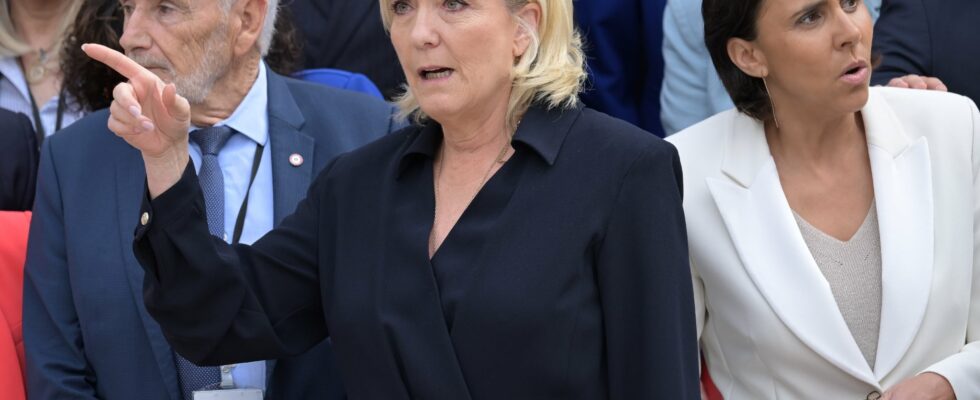Many French people felt relieved after the results of the July 7 election. Some of them clearly mobilized to prevent the National Rally from gaining a majority. This relief must be tempered in light of the fact that the RN still counted more voters than all the other parties or coalitions.
Now that this risk has been – temporarily – averted, it is possible that we will end up asking ourselves: have we not overdone it, and for years, with the RN? Many commentators have declined this idea in all its forms for months: after all, has the RN not shown that it behaved more reasonably than LFI in the National Assembly? Some also point out that, when the extreme right comes to power, it can soften when tested by reality and the appropriate example is that of Giorgia Meloni in Italy. The Italian Prime Minister once declared, for example, that Mussolini had been a “good politician”, yet, under pressure from European standards and the big Italian bosses, she had to adjust her policy.
There is a belief in a pseudo-law according to which radicalism would end up dissolving in the concrete exercise of power. It is a pseudo-law – which does not mean that it is always false and that it is without reason – because political history easily contradicts it. Extreme thought does not always fade in the face of reality; sometimes, on the contrary, it becomes enraged and even goes beyond what it had announced before taking power. To put it another way, there are no predictable links between the accession to power of political radicalism and the effects it produces.
Tree of possibilities
The most chilling and well-known example in history is undoubtedly that of the arrival at the top of the state of the NSDAP in Germany. Credited with 2.3% of the votes in the federal elections of 1928, it became the leading political force in 1933 with 43.9%. Having come to power, it abolished the foundations of German law and the Constitution. A political cataclysm that was almost unimaginable a little earlier. In a completely different register, Louis XVI convened the Estates General in 1789 (this had not been done since 1614) with the aim of forcing the nobility and the clergy, who had until then been exempt, to pay taxes. Did he imagine that, in doing so, he was activating a mechanism that would lead to his decapitation and the Terror?
One of the keys to explaining the non-linear consequences of the exercise of the State by radicalism is the way in which this power justifies its possible failure. In other words, the haunting question that arises when this type of political sensibility comes to power is: who is preventing it from exercising its program? Only the answer to this question allows us to predict whether reality will correct its pretensions or, on the contrary, push it incrementally towards its totalitarian compulsions. What is “preventing” can be an enemy from within, a “deep state” – to speak like Donald Trump – as well as the very Constitution of the country. When this political narrative makes this impediment a betrayal of the “people,” generalized violence is fast approaching.
This is why, despite the good image that RN leaders imitate in the public space, we cannot give them credit. The question is not whether they are sincere or not – no one can answer that – but to remember that their arrival in power draws a tree structure of possibilities, some branches of which are chasms of History. Consequently, those who, faced with the fears inspired by the domination of such a party over French political life, consider that this is a form of moral panic are not necessarily wise. Given the sensitivity of some of the RN’s candidates for deputy revealed by the press – conspiracy theories, vaccine skepticism, climate skepticism, etc. – it is difficult to bet on their domestication by reality. We are therefore in one of the cases where the formula in dubio pro malo (when in doubt imagine the worst) has a reasonable application.
*Gérald Bronner is a sociologist and professor at La Sorbonne University.
.
